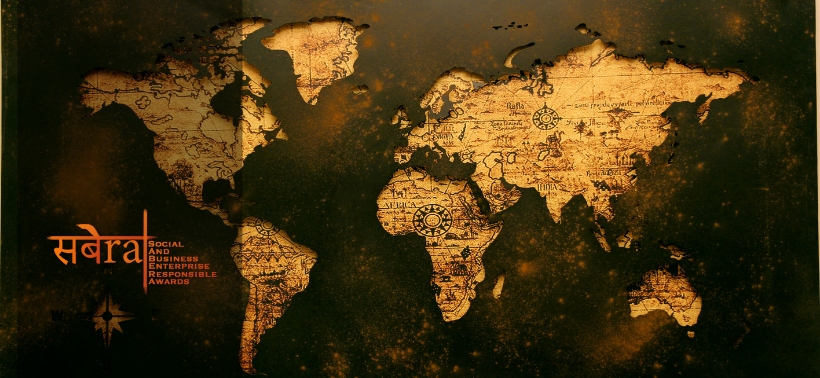Preparing for the New World Order
The world is now reluctantly but wisely conceding that a new age has been ushered in. Many, including some eminent members of government think tanks, still are so enamoured of the Industrial era, that they prefer to call it Industrial Revolution 4.1. It is understandable. To temper and tame our hubris, arrogance and intemperance in disowning and discarding what we have toiled to build over the last many centuries with our talent, intellect, sweat and blood will be difficult. For, a departure from something that we so passionately and painstakingly created, amplified and sustained and to get over its legacies is rarely uneventful or painless. However, this viewpoint, inevitably, is attenuating. Industrial Age is behind us. Long live the Age of the Internet.
New World Order
The tendency for mad and mindless rush for overexploitation of natural resources will be seriously revisited. ‘Back to nature’ is going to be the compulsion of the new age and will sustain. What also arises as a corollary of this is, the dignity of labor and the salience of physical work in daily lives that will get reestablished. However, the 4 pillars of democracy are what may be inalterably changed in the times to come.
New Media World
There was a time when most media companies were linear. In other words, their major occupation was to deal in aspects of media in varying modes, be it print or electronic. So, they would be in broadcasting, or printing, or when the internet became ubiquitous, and OTT- a most exciting experiment, be a platform, or a search engine. So while Google was a search engine, Facebook, WhatsApp etc. became platforms and conventional broadcasting comprised of companies who were offering news, entertainment, or a combination of both. So, we had companies like Star, Zee and TV 18, Disney etc. Today, this distinction is getting increasingly blurred. What is more fascinating is the fact that companies that were set up purely as e-commerce now have a significant presence as purveyors of content previously considered the exclusive preserves of media companies, a striking example being Amazon Prime? So the media business landscape is the new age will be one where every major enterprise will like to have a finger in the pie, not because of their core interests but to subserve, perpetuate, enlarge and maximise them.
Regulation – The Continuing Bone of Contention
Notwithstanding the initiative taken by the government to resolve the contentious issue of content regulation by recognising the mechanism of self-regulation and offering it legal protection, the broadcasters and OTT intermediaries seem set to protract this thorny issue. The regulations have been challenged in high courts. The new IT Rules are also under challenge. A section of the broadcasters and OTT players will like the government to be completely out of the picture as far as content regulation is concerned. The basic argument articulated and couched in intelligently worded statements and petitions before the courts, essentially seek supremacy of freedom of expression as enshrined in the Constitution with the state having no role in this matter, particularly as the Industry is volunteering to regulate it in a transparent manner. Their objection is that while retaining the role of ultimate and final arbiter in a content-related dispute, the government has negated the very purpose of self-regulation.
While the Courts adjudicate over this matter, and it may be expedient to await a verdict, the more significant and vital issue is the apparently reluctant and increasingly inadequate process of consultation and consensus-building. A reasonable via-media to resolve the contested issues is eminently possible, and this effort must concurrently continue irrespective of the judicial processes underway.
New Age and the State
A far more important question that has pervasive and permanent implications is how the state is going to deal with the increasing power and hold of internet companies on the lives and future of people. This threat to the position of state has been anticipated in many quarters and the debate is raging, at times openly but often obliquely. Irrespective of the form of government whether democratic or authoritarian, monarchical or anarchical, the threat is perceived as real. Given the propensity of humans to manipulate technology because no technology can make humans more reasonable or less selfish, those who control the internet will be prey to the same weakness and proclivities as the people who run the state.
The likelihood is that states may not countenance the constant erosion of their hold and authority demurely or passively. Their patience will neither be infinite nor indefinite. Countries with lower levels of education and awareness may be better able to deal with the supposed menace of internet induced unrest. The authoritarian governments may also be better equipped mentally and materially. China, for example, does not feel as threatened as India.
The coming age holds a lot of promise but it is also ushering in unknown, unanticipated, unplanned possibilities, many of which could be harrowingly unsettling and uneasy. The time to recognise and talk about them is now.
Views are personal. The author, Uday Kumar Varma an IAS officer, former secretary, Ministry of Information and Broadcasting and Ministry of MSME is also an esteemed jury member on the SABERA 2021 Jury Board. You may also like his article Who will Watch the WatchDog and Digital Age: Future of Democracy
Follow us on Linked in, Twitter, YouTube to never miss an update from SABERA. To submit your responsible work for SABERA 2021, Register here.
SABERA helps amplify Responsible Leadership and voices committed to GOOD.


